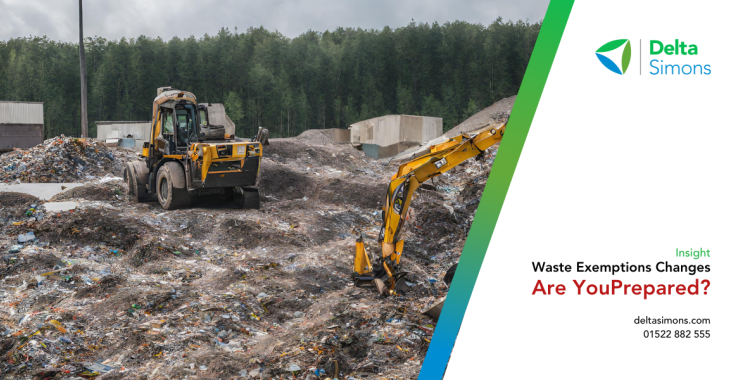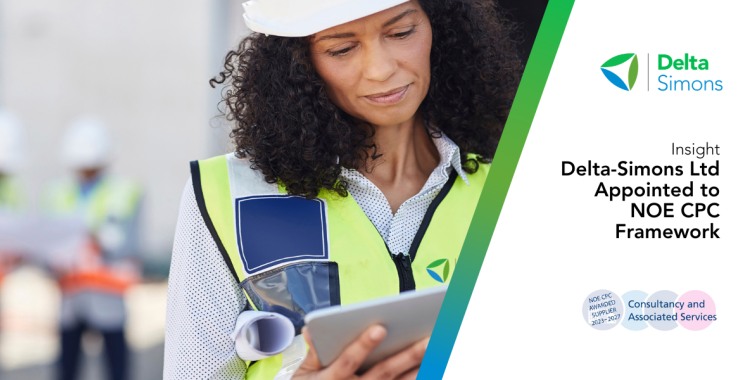Business Resilience
COVID-19 Business Resilience
The continuing COVID-19 pandemic has hit business hard and resulted in immeasurable personal tragedy. How can you and your business balance the need to work successfully with keeping your employees and others safe and supported? Our experts are keeping abreast of relevant developments, regulatory position statements, and industry body guidance ensuring that our advice reflects the most current UK Government guidance.
It’s important that you address the concerns of your people and your clients as they come to terms with the new systems and patterns of both work and home life, whilst continuing to address your legal obligations. This period of business review and renewal provides an opportunity to optimise your practices for the new ways of working.
Delta-Simons’ is working with a range of businesses, from global tech companies to local SME’s and has the experience to lead you through or assist you with navigating the complex issues that we face.
Either of these routes will provide you with the support you need from our expert team to ensure that you have the required risk assessment and control measures in place.
Are your plans adaptable to future developments?
Employers have a duty to assess and manage risks to safety in the workplace, including the risk of exposure to COVID-19. Regardless of the status of your business in relation to pandemic planning, it is important that you have a thorough risk assessment which identifies and formulates up to date control measures and reflects the latest guidance. With further local lockdowns a daily reality for many, it is also necessary to plan for tightening of restrictions as well as their relaxation. It is therefore important to include in your risk assessment the consideration of how any changes at short notice may impact the safety of your stakeholders.
Delta-Simons can assist in preparing risk assessments or reviewing risk assessments you have produced yourself. Our team of EHS professionals are experienced at preparing and reviewing risk assessments and a fresh pair of eyes often identifies additional risks and control measures you might not have considered
Supporting your Homeworkers
Many employees are currently working from home as a result of COVID-19. According to the Office for National Statistics (ONS), 47% of employed people did some work from home in April 2020. 86% of those who worked from home did so because of the pandemic.
For many, this change is likely to remain in place for a considerable time. Relatively few of these employees have regularly, if ever, worked from home in the past, and many do not have access to the workstation setup they would expect in the workplace.
Supporting your employees to work safely and effectively does not have to mean capital spending on costly display equipment or office chairs, but rather can be achieved through gaining an understanding of current working conditions, and sharing advice on how to optimise their arrangements, seating positions and working routine to maximise physical and mental health and wellbeing.
For many, the change to homeworking and the associated uncertainty has led to feelings of stress. Stress and psychosocial issues can be assessed and managed through the HSE Management Standards. These cover:
- Demands – including workload, work patterns and the home or socially-distanced office working environment
- Control – how much say the person has in the way they do their work
- Support – including encouragement, sponsorship and resources provided by the organisation, line management and colleagues
- Relationships – hard to maintain positive working relationships and build new ones, especially for newer employees, while working at home or in a reduced-occupation office
- Role – whether people understand their role within the organisation and whether the organisation ensures that they do not have conflicting roles
- Change – how organisational changes are managed and communicated
Delta-Simons can assist in reviewing your organisational controls on stress and psychosocial issues. Traditional HR policies and procedures may be seen as a blunt instrument and pre-COVID homeworking policies should be updated to be more flexible with employees’ individual circumstances. Effective dialogue between employees and line management is more important than ever.
Making your workplace ‘COVID secure’
UK Government Guidance has been produced to help different sectors understand the guidelines which are relevant to them. Working safely during coronavirus (COVID-19), a series of guides giving industry some practical guidance on areas which require assessment and control, including access and egress to the workplace, maintaining social distancing and staggering shifts.
Both the strategy and sector specific guidance reinforce the fact that employers have a duty to assess and manage risks to safety in the workplace, including the risk of exposure to COVID-19.
Services we offer
Home Working
Many employees continue to work from home as a result of COVID-19. For many, this change is likely to remain in place for a considerable time. Employees may not have worked from home regularly in the past, and many do not have access to the workstation set up they would expect in the workplace. In addition, employees may have been working from home for the past several months with less than ideal set ups, which may cause discomfort.
Our team of Ergonomics Specialists are able to support home workers in achieving optimum workstation set up. Our Remote Ergonomics Assessment Specialist and Certified DSE assessors are able to provide low cost solutions and advise on best practice ergonomic habits to maintain comfort levels whilst working from home.
Not every home is entirely suitable for home working. Employers and employees must make the best of the situation whilst ensuring the employee is kept safe and healthy. We are able to advise on home working environment considerations such as fire safety and electrical safety, lone working and employee welfare issues.
Workforce Wellbeing
In addition to the legal responsibilities, the well-being of staff is key to the success of any business. Many people have been directly affected by the pandemic and everyone’s way of life has been impacted. This has led to a range of challenges, including increased worry around physical wellbeing, mental health and that of their families and friends. As an employer, you want to be sure that these concerns are addressed enabling people to return to work feeling confident, healthy and supported.
We can undertake wellbeing assessments to examine a company’s Environmental, Social and Governance policy, and provide a review of existing initiatives, proposing actions to improve health and wellbeing outcomes. We can also support the development of health and wellbeing policies to promote the wellbeing of teams and colleagues, and provide supporting documentation and metrics to demonstrate your company’s commitment to wellbeing in the workplace and support corporate ESG reporting.
Legal Duties of Employers
Legislation around health, safety, wellbeing and environment has remained in force during the COVID-19 pandemic. Just because some of your employees are no longer in the workplace does not mean that you do not have responsibilities to fulfil, including statutory inspection and test requirements. You will also need to consider how you deal with suppliers, contractors, customers and members of the public. Relevant legal requirements include:
The Health and Safety at Work etc. Act 1974 is the principal piece of UK legislation that details employer’s workplace health and safety duties. The general requirement to ensure the health, safety and welfare of your employees extends outside of the regular workplace.
The Management of Health and Safety at Work Regulations 1999 requires employers to ensure all work activities are suitably risk assessed and sufficient control measures are put in place to reduce the risk to as low as reasonably practicable. Control measures include social distancing and redesign of work activities and the workplace.
The Regulatory Reform (Fire Safety) Order 2005 is the principal fire safety legislation in England and Wales. In the event of a fire and evacuation, ensuring social distancing may not be the top priority. However, with reduced staff numbers do you have enough competent employees to ensure your fire precautions are maintained?
The Workplace (Health, Safety and Welfare) Regulations 1992 requires employers to provide a workplace with welfare facilities which is capable of being kept clean and includes provision of adequate ventilation, lighting, sanitary conveniences and washing facilities.
The Health and Safety (First-Aid) Regulations 1981 requires employers to provide suitable first aid provision, including materials, equipment and facilities. This includes maintaining sufficient numbers of trained first aid personnel, including during period where headcount may be decreased.
There are many more legal requirements which apply to employers, depending on your business activities, substances and work equipment that you use.
Unoccupied Premises
Even while your premises are not being fully used, or in many cases not open at all, your legal duties do not disappear. You must ensure that your premises are kept in a suitable and secure state, doing what you can to prevent arson, vandalism and intruders.
Keeping the workplace and utilities in a fit state to resume operations will help. Flushing of the hot and cold water pipework will likely be needed after a long period of being unoccupied, to reduce risks from Legionella.
The HSE expects statutory inspection and test for equipment including pressure systems and lifting equipment to continue, despite the challenges in maintaining social distancing with inspecting engineers.
Landlords may wish to take a proactive approach to manage tenant activities. Where tenants are breaching environmental legislation and landlords are aware of these unlawful breaches and do not act, they may be prosecuted as a ‘knowing permitter’.
Cleaning of the workplace should take place prior to reoccupation and between shifts to reduce the potential for virus transmission
How We Can Help
Whether your business operates from a single site, or you are a multi-national corporation, Delta-Simons recommend a similar staged approach for assessing your current working arrangements and developing an action plan for phased return to work. Our support offerings are tailored to the scale and complexity of your business.
If you'd like to speak to someone about how to do business during the COVID-19 pandemic and your responsibilities as an employer, contact our team of EHS specialists on info@deltasimons.com











